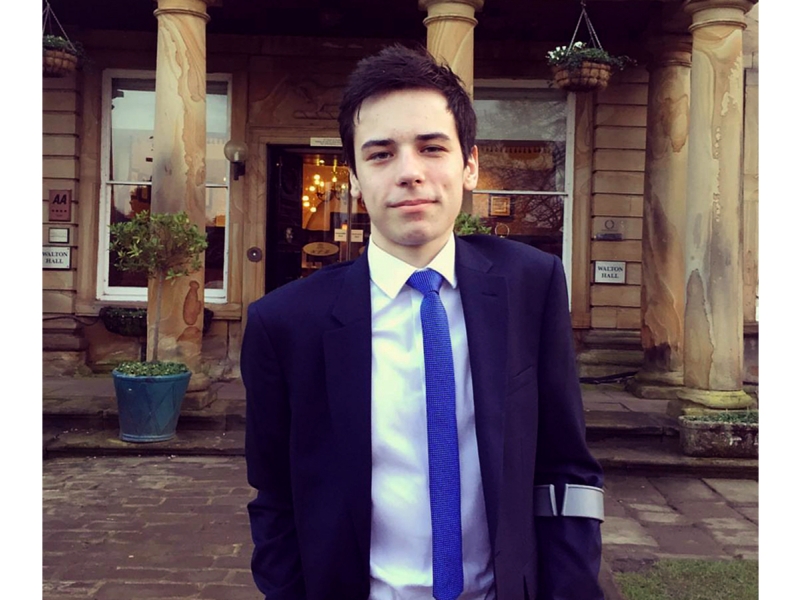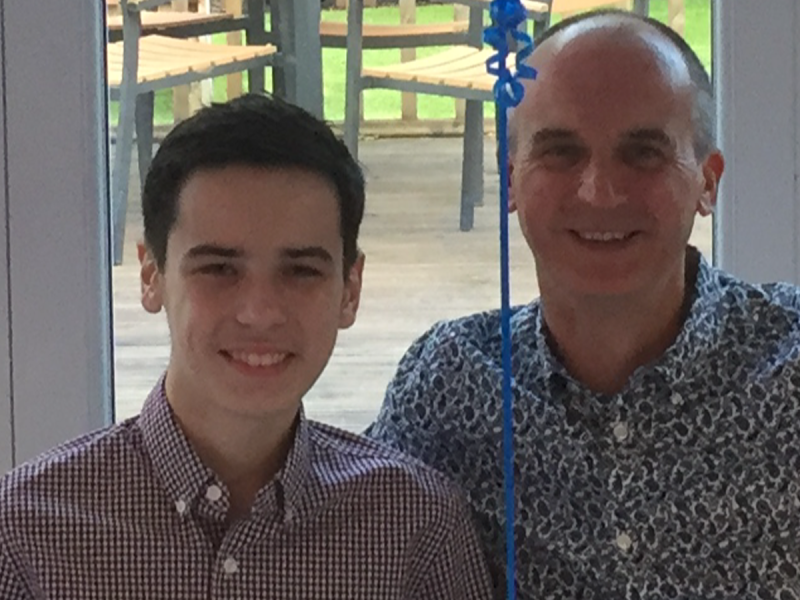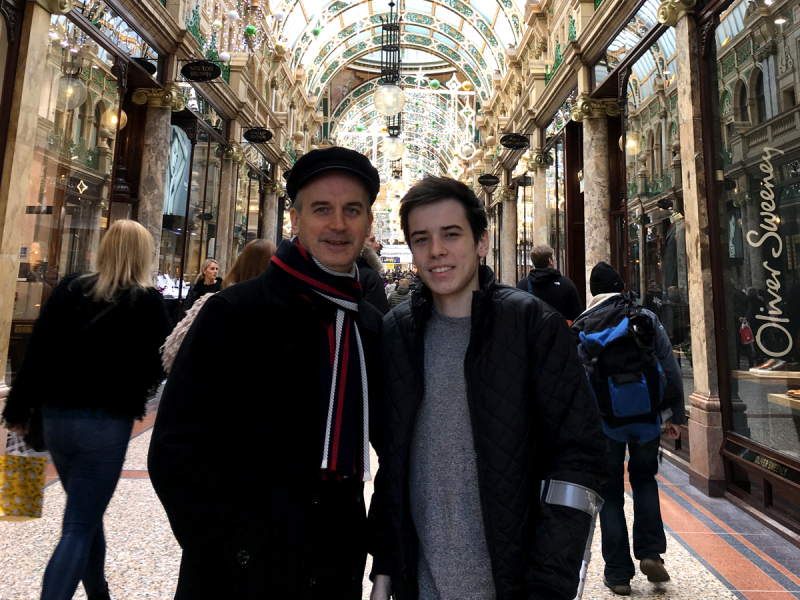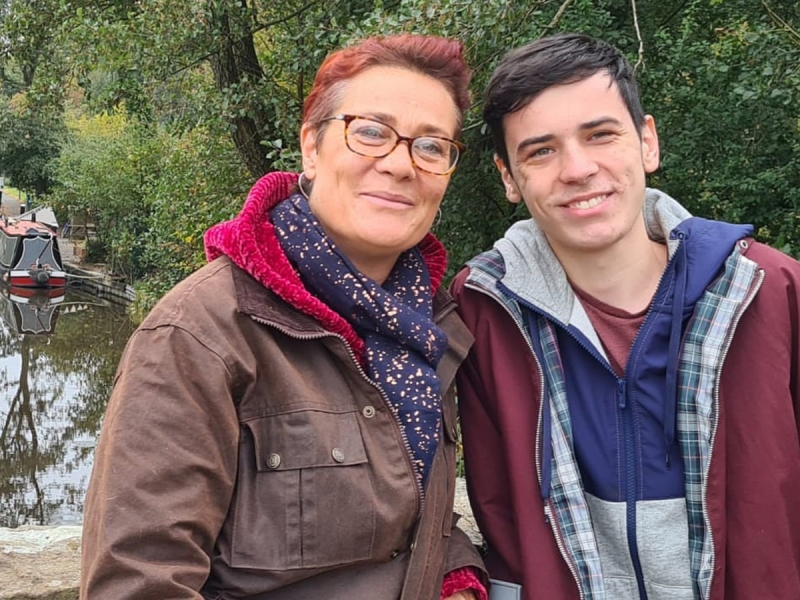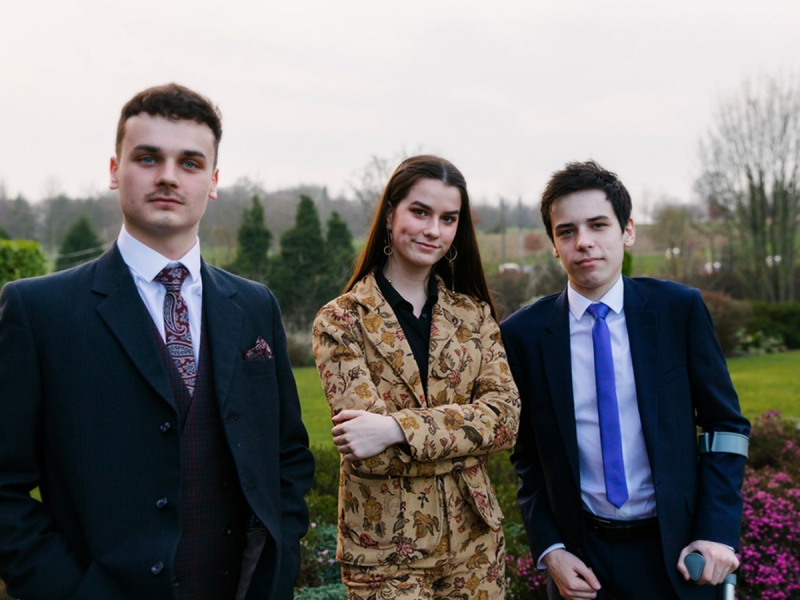Living Different: Patricks’s NF2 Blog
18 May 2021
Hi there! I'm Pat, I am 20 years old and currently studying Business and Management at college with only one year left before obtaining my degree. Alongside this I also work in marketing, mainly focused on social media. Apart from my business course I am also interested in Psychology and a huge fascination with History and I love to learn more and more about it. I also enjoy puzzles and reading, mainly Sci-fi and novels based on true events.
I have Neurofibromatosis type 2. My diagnosis was a complicated process because I lived in America when my parents noticed I was constantly walking on my tip toes. The doctors thought I just had tight calves and so I had many treatments to try and deal with that (physio, splints, casts) but I would always go back to walking on my tip toes. I was diagnosed when I was 6 after MRI scans and blood tests back in the UK. It was found that I had a large mass in my lower spine, 3 smaller lumps at the top of my spine and one on each of my acoustic nerves (left and right). Since then I have had many operations – major and minor – as well as new forms of treatment to try and reduce the size of the tumours or treat the symptoms caused by them.
Support Patrick's Fundraiser 14 mile challenge in 7 days to raise awareness of the 26,500 affected by NF
I found out about Nerve Tumours UK from my mum who was looking for ways in which she could support me further during a really bad time in my life when my condition was deteriorating at a faster rate and really impacted my quality of life. Since then my condition, unfortunately, has continued to worsen but my quality of life has definitely improved over time and I am much happier now than I used to be.
Throughout my time of dealing with NF2 I have been greatly supported by many nurses in different positions. For 6 years I was being supported by the local community children’s nurses who were incredible at supporting me when I was really struggling. I have also been helped by the NF2 team in Cambridge. Over a few years I attended a disabled activities club which allowed me to continue being active alongside other people who may struggle in the same way as me and it allowed us to support one another.
I started this blog as an outlet for myself to share my passions and interests as well as my experiences in an attempt to build people's understanding of the challenges people with disabilities - physical or otherwise - go through on a day-to-day basis.
You can read Patrick's blog directly below or by clicking on the link
15.05.21 - What it’s Like to Live with Chronic Pain
We all feel pain every now and again, but some people experience chronic pain which makes every little task feel 100 times harder. For me, this pain is in my lower back/hips and knees and no matter what I do to try and get rid of it, the pain is always there and interferes with every aspect of my life. I have had these pains now for so long that I can’t remember living my life without feeling pain somewhere. Not only that, sometimes I get flare-ups of pain and it can get very intense making it almost impossible for me to do anything: I can’t sleep, I can’t move around, and I can’t even sit down comfortably.
It started when I was going into secondary school and I was having sleepless nights – I was only able to sleep around 3 hours per night. This made it so difficult to just get through the day, I couldn’t focus, I couldn’t socialise, I couldn’t even stay awake during classes sometimes. It was so frustrating to deal with because my body wasn’t doing what I wanted it to. A lot of the time when I got home from school I was in tears because of the pain. I tried so many ways of getting rid of it but no matter what it was always there lingering and constantly on my mind. Sometimes it got so bad I couldn’t do the bare minimum during the day – I couldn’t dress myself; I could barely get down the stairs.
It made me feel so alone, so trapped because I couldn’t do the things I wanted to; I couldn’t go out and mess around with my mates or play football. The parts of my life that I loved were being stolen from me one by one, and the more time went on the less I was able to do because I was in too much pain, or doing it caused a lot of pain. One reason why I hated school was because I could see everyone else enjoying themselves whilst I was faking my way through each day, pretending as if I were fine. At break and lunchtimes, my mates went outside to play football – I went and sat in the disabled toilet.
At that age, it is so difficult to reach out to someone and ask for help because you’re afraid of being judged, ridiculed, or just standing out. Every time I looked back on my school days, I wish a teacher had reached out to me and sat me down and asked if I was okay. I believe that if someone from my school had reached out to me and supported me in certain ways I would have enjoyed and worked better. That’s one reason I am writing this post, I think people need to be aware of how scary and worrying it can be to reach out themselves when they have a problem. So, if you notice something, no matter how small, in someone else’s behaviour/attitude you should reach out to them; don’t just ask “are you okay?” and leave it at that because we all know that when people answer that question, they rarely mean what they say. Ask more general questions about them because the more you show an interest in someone who you think is struggling, they would be more comfortable and willing to open up and seek support.
As you’d expect the doctors put me on painkillers to try and help. Not only that, but they also put me on enough painkillers I was surprised I didn’t rattle like a maraca with each step I took. Annoyingly, this never got rid of all the pain, I could still feel it even though it was less prevalent. I was able to do general day-to-day tasks easier now but the pain in my legs and hips was still there, in the back of my mind. I was always so paranoid and anxious that it was going to flare up again at any point. Even though I could do more without having to worry about being in pain I still kept to my same habit of staying inside and not going out with my friends. This is one of the biggest regrets of my life, despite being able to go out and socialise with my friends I stayed in, alone and withdrawn from the world.
Not only did the pain killers I started taking at this point not remove all the pain, but I also had to deal with the annoying side effects that they came along with. The drowsiness was the worst one. Yes, I was able to sleep more now I was taking them but that didn’t matter because I still felt tired all the time as they made me sleepy during the day. So, I still couldn’t focus or stay awake in all my classes. I used to get so frustrated with myself about now being able to focus, despite it not being my fault. I went into every class knowing that I may not be able to stay awake or remember anything 10 minutes after. I remember some days I was so fed up I’d go home and cry about how useless and pathetic I was being because no one else seemed to have a problem with concentrating and learning.
The one thing I don’t think people realise is how much chronic pain can take it out of you. It really does drain you quite a lot. But as with everything in life there are good days and bad days. Some days are less draining than others, but I don’t remember the last day I went without feeling pain and it has just become part of my daily life now. However, if going through this has taught me anything it's that you really need to take advantage of the good days. Try and do as much as you can during the days you feel your best self whether that’s productively working or going out to see mates. Don’t let the worse days impact what you can do on your best days.
13.11.20 - Loneliness Has A Bigger Impact Than You Think
I have felt lonely for so much of my life. During school, I felt like I did not fit in with anyone. I hated school because it seemed like everyone had it so easy being around other people. Everyone had their own groups of friends that they sat with during classes and at break. I never had that. I felt like I was always the one that was just there but had no meaning or impact during the day. All I wanted during school was one friend who I could talk to all the time and enjoyed the things I did and wanted to spend time with me. Everyone I knew had that one friend who they would constantly spend time with and do everything with, but I felt like I never even had anyone I could talk to during school.
The only year I remember having a friend I spent time with and felt like they like spending time with me was my first year of high school. However, in year 8 when I started struggling and being able to do less, they slowly started to talk to me less until eventually I was alone and spent lunchtimes on my own. Since then I have felt because of my condition I am going to be alone forever. I never made any proper friends during school after that because whenever I tried to talk to new people, they would never be bothered to talk to me after. I tried so many different ways of talking to new people and making friends, but a lot of the time I would just get ignored. Eventually, I gave up and just accepted that because I was different and disabled, I was not going to make a friend ever.
I am always so jealous of seeing other people with their friends. I always thought ‘they do not understand how lucky they are being able to have someone they can talk to and rely on all the time’. Not only do I have no one I can hang out with but I have to worry about spending too much time doing any activity because if I am doing something for too long I would struggle to move around at all for the next week. When the first lockdown was announced, and people started to complain about not being able to go and see their friends I got very agitated. I have lived that way for almost 10 years of my life and there are other people who have never been able to go out and spend time with other people, and you’re complaining about having to be inside for 2 months.
I have felt lonely for as long as I can remember. It has made it hard for me not to think that the reason people do not want to be around me is because I am disabled and because I will bring more bother with me. I rarely go out with my family anymore because all I think is that they have to do so much to help me, that I may as well stay at home and let them have a fun day without having to worry about making sure I am okay. Because of my disability, I have always felt as though I am always going to live alone and never have a best friend or girlfriend or anything like that. I have a lot of problems that I need help with, which is why I can see why people would not want to be with me, but it does make me feel alone.
I feel so lonely that when I get a message from anyone it fills me with joy and happiness. I am sure there are people who feel just as, if not lonelier than me, and it really has an effect on how you think. I feel now that there is no point getting to know new people because whenever I have tried, I get shut down or blanked later on. It makes you feel worthless and that you add nothing to anyone’s life. It makes you feel useless and a hinderance. If there is one thing that makes me feel joy now it is when I receive a message out of the blue from someone, whether it is a family member or someone random.
I do not think people realise how much one simple message can benefit someone who feels lonely. It makes those who are lonely feel so much happier when they see someone else try to talk to them, and who knows you may have similar interests and get on with one another. I think people who already have a friend group are not interested in initiating a conversating with someone new and that is why people do bother getting to know one another anymore.
Boredom does not help the feeling of loneliness. Over the lockdowns, I have realised just how lonely I am because it has been filled with boredom and so I have been thinking a lot. Being bored for such long periods in a day really made me realise how lonely I am. I go on to Instagram and see all these people saying how much they miss their friends and look forward to spending time with them again. During all the time I have been bored, I realised how sad and lonely my life truly is, because not only is no one probably missing spending time with me, I also have no one I can message and chat with on a daily basis.
Eventually, I decided to start messaging people I haven’t talked to for a long time if at all, but almost every time I did not get a response, or we had one conversation and the next time I sent a message I was blanked. It made it hard not to think that I had no effect on other people and that I was just bothering them. Sometimes I feel as though I have no purpose in life and that there is no point.
10.10.20 - Surgery and the Effects it can Have on You
Surgery is scary whether it is a minor procedure or a major one. I have had my fair share of operations, my first one being when I was 8 years old. Since then I have had 7 operations, which to some people may be quite a lot but to others, this would be a small number of operations – some people have to have operations every year or even more than that. I have not gone more than 2 years without having to have another operation and because of this I have lived my life in anticipation for when the next thing goes wrong, and I need to have another operation.
I have spent a long time living my life in fear of the next big thing that is going to affect my physical capabilities. The first time I noticed a change was when I started to experience intense pain and achiness around my knees and legs after doing exercise. The pain was so bad I often spent several nights in a row with near to no sleep. No matter what I tried to do or the number of painkillers, I could take, the pain was constant and really impacted me mentally as well.
Since then, I have experienced more and more changes in my body that have resulted in further operations and so now, whenever I feel something new or notice something different in my body, I live every day knowing that I will end up having to have surgery at some point. When I was 14 I noticed my ribcage slightly poking out of my body on the right side which was a terrifying thing to notice because I knew this was not normal but at the time I was too afraid to say anything to my parents or doctors because I was terrified of the possibility of surgery. But the scarier part of it was not knowing why my ribcage was in this position and whether it was going to get worse.
Turns out that the reason for this was because the tumour in my lower spine had grown larger and was eroding and weakening my spine so it could no longer stand up straight and began curving, causing scoliosis. As with all people with scoliosis I was told that I was going to have an operation in order to straighten my spine or at least stop it from getting worse. What I did not realise is that my scoliosis was more complicated to treat than others because of the position of the tumour, therefore, the metalwork used to hold my spine had to be custom made. 4 metal rods in total were used, 2 either side of my spine and a further 2 connecting from the back of my ribcage to my pelvis. Whenever I get a glance at my back in a mirror now, I cringe and hate looking at it because all I can see are the bolts and screws protruding through my skin.
I was far more scared of this operation than any others I had before. I think it was down to the fact that I was more aware of what was happening now, and I built up so many ideas and outcomes that could happen in my head that I became overwhelmed. After 12 hours of surgery, I was told that the surgeons were unable to straighten my spine fully, but the scaffolding should stop the curvature from getting worse. But that did not get rid of the fear of something going wrong again because now I live with a whole new set of thoughts that go through my mind listing all the things that could go wrong whilst the rods are in my back.
The process of having this surgery before, during and after whilst I was recovering because there were some huge changes instantly that I noticed due to the operation. It was harder to do a lot of simple day-to-day tasks on my own. I could not shower or wash myself for a few months after, I started to struggle to put my shoes and socks on a lot more, I also had to learn to walk again, because the metalwork in my back threw off my body movements and balance. I often think and blame myself for letting my spine get as bad as it did because I noticed a difference in my posture but was too afraid to mention it.
If I did mention it would I be in a better position today than I am? That is a question I will never know the answer to but it is because of this experience alongside the other surgeries I have had that has meant that I have learnt that I need to stop living in anticipation for the worst outcomes. Start taking opportunities to do new and exciting things as and when they come.
Stop saying no to things just because you feel like you may not be very good or may not be able to, say ‘yes’ to as many opportunities as you can. You may not enjoy everything you try but the only way we find things we enjoy is by trying them for the first time.
Some days are better than others, as it is with everyone, but it will be better if we all stop living in fear of what might happen and start living in hope to find new and exciting experiences.
25.09.20 - Going Back to School Isn't Always Easy
As everyone is going back to school recently – some may even be going to a new school or college, university, etc. – I wanted to discuss the fact that some people do not find it as easy to go back to school for multiple reasons. I really struggled going back to school each year and experienced high levels of anxiety every first half-term. This was largely due to my disability, but people will have different reasons for finding it hard to start or restart school again.
Having Neurofibromatosis Type 2 causes a consistent decline in my health and physical capabilities because the tumours around my body consistently grow, causing more pain, weakness, and reduced flexibility in my legs. Therefore, during the six weeks I had off between years at school, I was able to do less and less every time I went back. This made it increasingly difficult to keep up with my friends and I could no longer go and hang out with them, without feeling pain or discomfort.
One of the hardest years going back to school for me was year 8 when I was around 12 or 13 years old. Before this, I was still able to do physical activities and sports, but when I went back to school that year I had to start using crutches to help me walk around as my legs were no longer strong enough to support me. This made my anxiety rise drastically because I did not know how people were going to react and whether or not it would make a difference with my friends because it was clear how different I was now.
Before I had to use crutches, the majority of people were surprised when they found out I had a disability. Knowing how clear it is you have a disability or condition makes it harder to feel like you fit in because you cannot hide how different you are and during school years I found that people are less likely to be understanding in that being different is not a bad thing. Looking back, I wish I had been more accepting of my differences – if we were all the same life would far more boring.
It was scary to see such a drastic change in my capabilities because I went from doing most of what everyone else can to being forced to walk around with support and giving up many things I really enjoyed. The difference between me and everyone else, when I went back to school, was so obvious it caused me to be a bit self-destructive in terms of friendships. I thought that because I was so clearly different and incapable of doing so many things my friends were able to, I could no longer be friends with them. This caused me to distance myself from everyone who was ‘normal’ and not go out, or just stay secluded from anyone because I could not do the same things they could.
From year 9 to year 11, I was so afraid of my differences that I isolated myself whilst I was in school. I spent my break and lunchtimes sat in the disabled toilet away from everyone because I did not feel like I fit in with anyone else in my year. As soon as the bell would ring I bought some food from the canteen and walked straight to my place of solidarity and sat there until the break was over and then went back to class again. This was the same routine I had every day I was in school for those 3 years of school.
I got myself into the mindset of I can only hang out with people who can do the same things I can, which is completely wrong and should not be how anyone thinks. The great thing about life is that we are all so different in our physical and mental states. People who think differently and enjoy different things can still be friends, so it should not matter when it comes to people’s physical capabilities either. In hindsight, this may seem obvious, but at the time you may only be able to see the differences between you and the people around you. However, differences do not make things worse, they make things better and more interesting.
No one should be discounted or discount themselves because of their differences, no matter what they may be. Going into a new year of school will always bring some sense of anxiety and nerves because it is a new environment that is unknown to everyone. You do not need to flaunt your differences for everyone to see if you do not want to, but you should also not be ashamed and feel like you need to hide your differences, because everyone has their differences whether you can see them or not.
Everyone has preferences in people they want to be friends with at first. Our differences from other people are what ensure there is always going to be someone whose preferences fit your differences, therefore, there will be someone who you could get along well with somewhere, it is just about accepting how you are different and not let that impact your confidence and self-belief.
11.09.20 - How Should We React to Bad News?
Bad news is something everyone will experience at one point or another in time. I have experienced my fair share of bad news: my diagnosis, surgeries, and others. People may consider different kinds of news as bad news: losing a client at work, getting poor results from a test, etc. The important thing to note when someone receives bad news is that everyone will react differently, even if it is the same news someone else has received. Some people talk about it with others to find comfort, others, like me, minimise the contact with people to think about their situation on their own.
There is no right or wrong way to react to bad news and no one can predict how another person will act after hearing it. Reacting to bad news is completely normal but sometimes people can get wrapped up in bad news and feel imprisoned by their negative thoughts. Therefore, it is important that however someone reacts they will always need help and comforting from anyone around them. Whether you know them or not, if you are aware that someone is has reacted badly to some news it is the humane thing to ask how they are doing.
Because of my disability I have had multiple times when I have received life changing news. From my original diagnosis to some major surgeries. I was too young to remember being diagnosed but I remember the fear when being told I was going to have surgery the first time. I was 8 years old and I had to go through a major spinal operation that lasted 11 hours where the surgeons removed a large mass of my pelvic tumour. That operation, after a six or so month recovery period, had a benefit on my quality of life, but it was only a temporary solution as the tumour continued to grow and my physical abilities deteriorated again and will most likely continue to.
As I received more news about surgeries or treatments, and that my physical state will continue to worsen, my reaction to them became more and more numb. Not because I did not think it was a big deal but because I have been through it before, and it has become a repetitive experience in my life. To me this is not a healthy way of reacting to bad news because it results in me not dealing with it and instead just shrug it off like it will not affect me afterwards. Having a feeling towards bad news, bad events or anything else like that is healthy because from that you have the opportunity to face the situation in a way that allows you to prepare for it.
People tell me that I ‘deal with it well’ but it has got to the point where I am not really ‘dealing with it’ at all because to me there is nothing wrong or bad happening, it is just another day at the office. To other people though, having major surgery could be the worse feeling they could get. That is what I am trying to express when saying that we all have out own concept on what bad news is, so no one has worse news than other people. It depends on how each individual is affected by the bad news they receive.
Life has designed itself so that we are surrounded by bad news on TV, radio, newspapers. This makes it incredibly hard to believe that good news exists, but it is likely that you have received good news but not even realised it or remember it because life being designed in this way makes us recall the bad news or events in our lives more than the good. We need to start taking note of the positive news we get no matter how small and focus on that, otherwise you are likely to create a negative environment for yourself.
My way of doing this over the past few months is whenever I receive some really good news that makes me happy, I make a note of it on my phone. I have noticed since doing this I have also begun to recognise that more smaller good news in my life has stuck with me or I have remembered good news from before that I did not notice at the time. I am not sure if this would work for everyone, but one way we can improve our lives is through trial and error of different strategies that might make us happier beings.
18.09.20 - Struggles are Unique
Everyone has their own problems in life which they deem a bigger deal than others. But not every person will experience the same struggles, and so may feel they cannot help. I aim to remove this feeling from people because we CAN support those with problems that we have not, or do not experience ourselves, it is just a matter of figuring out how.
I believe the key to helping in these situations is creating a better sense of understanding, by educating and explaining the struggles different people can experience in unique situations. We all go through life separately, therefore, our problems, our reactions, and our defence mechanisms are all unique. We need to start becoming more understanding in order to be able to effectively help those around us.
Having a physical disability brings with it many challenges in life that most people may not realise. Therefore, when discussing these with others there is little they can do to help, not because they do not want to, but because they do not know how to. This use to result in me not sharing my difficulties because I did not see the point, all it did was burden people with my problems.
However, this had worse effects on me as it began a cycle where I started to think there was no point in sharing anything anymore because I did not want to bother anyone with my issues. I spent a lot of time just thinking on my own and getting into my own head to the point where I forced myself into a state where I could no longer think positively about my life. I ended up becoming desensitised from my emotions and separated myself from my friends and family.
Despite me trying to separate myself from my friends and family, however, it was thanks to them that I was able to improve my mentality about my struggles by consistently asking myself questions about what I was struggling with. They may have been obvious questions like “how are you?” or “how does that make you feel?” but I realised that what was actually happening by me answering these questions was that people were learning about what I was struggling with and became more understanding to those struggles. From this, I was supported in different ways by different people around me. Some trying to get me outside again to socialise, others trying to find me new interests to keep my spirits high.
Eventually, I was beginning to feel happy again, and whilst I still feel desensitised from some of my emotions, I have noticed myself improving and becoming a happier and more social individual because the people around me learnt how best they could support me.
I do not believe in the cliché of "struggles make you stronger" because they do not. The struggle alone is damaging to a person's mental health and can make life very difficult. It is the way in which you chose to face the struggle that makes you stronger. Sometimes we can confront our struggles solo, but other times we need some encouragement or support from those around us. This support system to help people fight their struggles is what makes you stronger not the struggle itself.
This is why I want to begin a conversation between all sorts of people who experience different struggles in different situations. Whether you disabled or not, gay, straight, black, white, or whatever; everyone has difficulties in life. Just because you do not encounter the same issues someone else does, does not mean it has no impact on them. It also does not mean you can not support them if you want. Learn about their struggle – ask questions – because that is the only way we are going to be able to understand what other people are struggling with and it is only until we understand something that we can support it effectively and ensure the struggles of those you care about are minimised and eased.
Filter News

Do charity ads get on your nerves?
The 4th NTUK and RBH digital media awareness campaign features a cheeky attention grabbing advert
Read More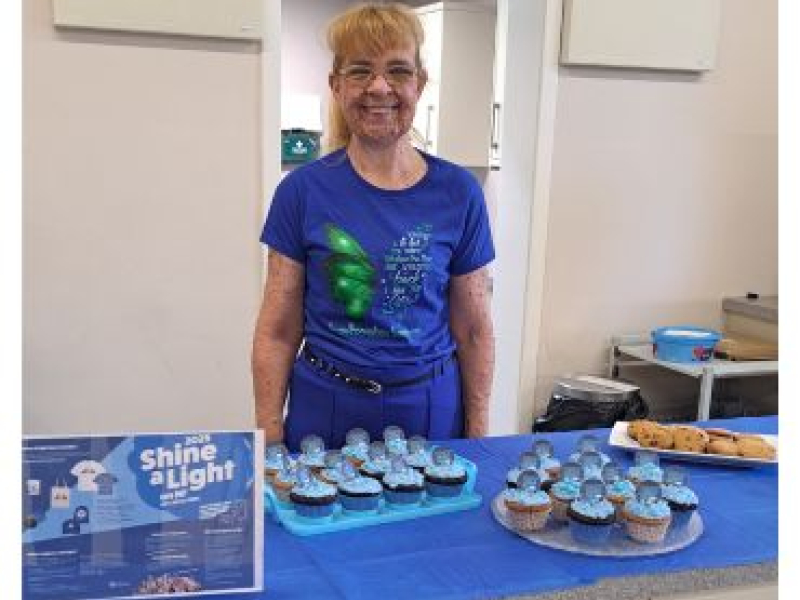
Laura’s NF1 Awareness Story
Laura shares her NF1 story and tells us how she is raising awareness for World NF Awareness Month
Read More_1_800_600_s_c1.jpg)
Living with Neurofibromatosis Type 1: A Journey of Resilience, Transformation, and Impact
Our new charity ambassador, Amit Ghose, shares his inspirational story.
Read More_1_800_600_s_c1.jpg)
NF2 Quality of Life Questionnaire
The Massachusetts General Hospital NF research team would like your help to test a new quality of life questionnaire
Read More_3_800_600_s_c1.jpg)
Running for a Cure: Laura and Gonzalo Take on Half Marathons for NF1
Laura and Gonzalo; founders of CureAge Therapeutics, lace up for NF awareness.
Read More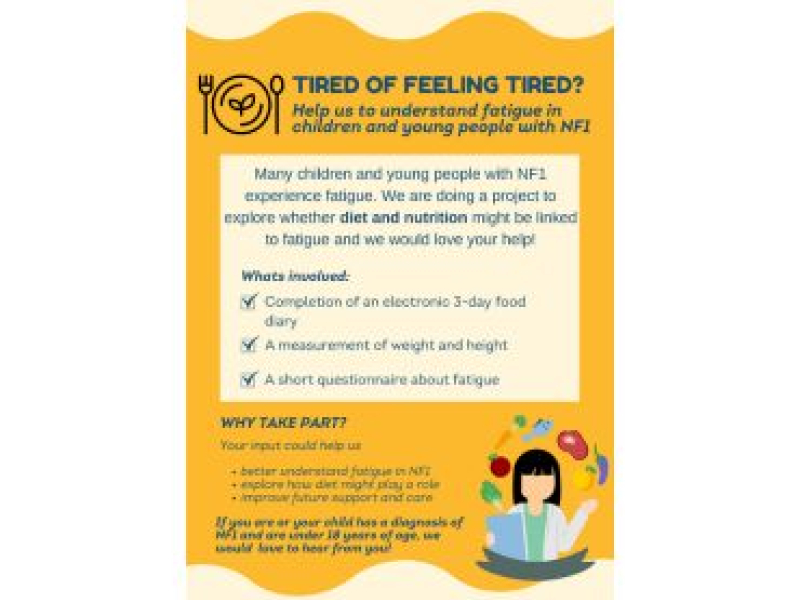
Diet, fatigue and NF1
Take part in this research study which will explore the connection between diet, fatigue and NF1 in children and young adults
Read More
Our Ambassadors
NTUK is delighted to introduce you to our three new ambassadors, Emily Owen, Georgia Baum & Amit Ghose.
Read More
London Marathon 2025 Team NTUK
Congratulations and a big THANK YOU to Team NTUK for their superb efforts
Read More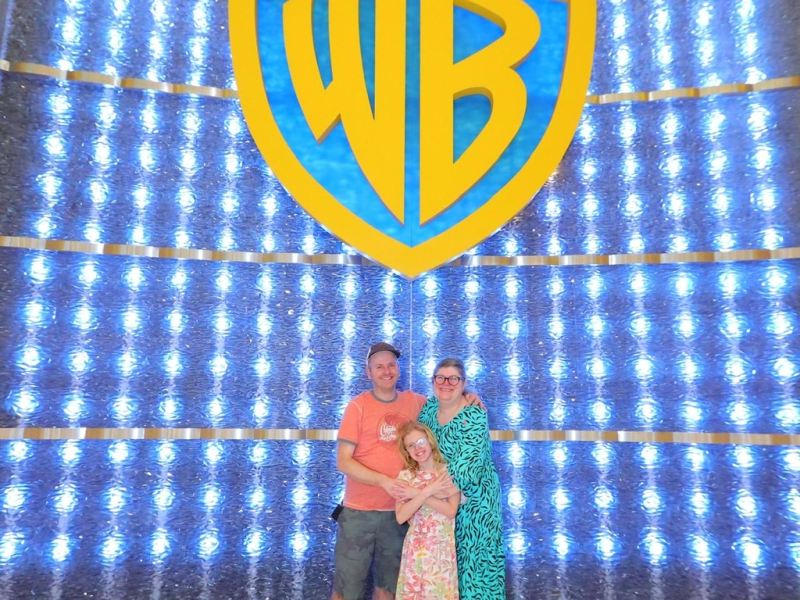
Ian’s Story
Read Ian's story and why he's going the extra mile for NF awareness and his daughter Emily
Read More
